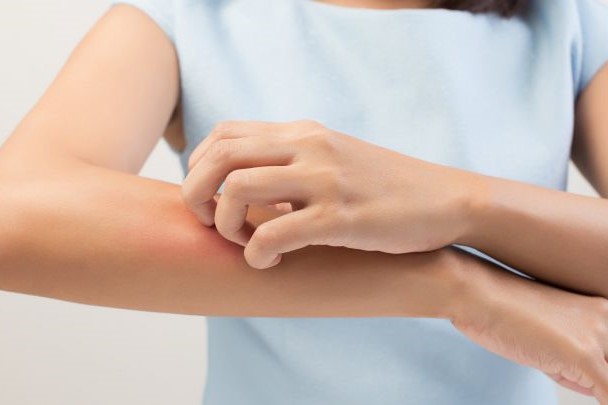
Dermatosis and itching in pregnancy: when is it normal and when to worry?
Itching in pregnancy should not be overlooked: in fact, there are some dermatoses frequently associated with the development of itching which must be known and evaluated by the specialist
Types of harmless dermatoses
A first group is represented by the polymorphic eruptions of pregnancy: they are frequent in the third trimester and in the postpartum period. Usually localized to the trunk, self-healing, it involves only mild local dermatological therapies.
The prognosis is also excellent for the child, as it is not harmful.
The group of atopic eruptions of the eczematous type is always not harmful to the fetus, quite common, except for the problem of the ever-present risk in the newborn to later show lesions related to atopy.
Local dermatological treatments should generally be used.
When do we talk about cholestasis of pregnancy?
The case of intrahepatic cholestasis of the pregnant woman is different, which begins in the third trimester with a very intense and sudden, generalized itch.
Serum levels of conjugated bilirubin will confirm this.
In this case the patient should be monitored very well for fetal (prematurity, distress) and maternal risks.
It still happens to see the C.D. Herpes gestationis, which is in fact a pemphigoid, and therefore an autoimmune disease, with the characteristic development of periumbilical vesiculo-papules.
Typical of the third trimester, it was once considered completely benign, and is currently associated with possible neonatal lesions, as well as intrauterine growth retardation.
Histological examination confirms the diagnosis. To be treated with systemic drugs and monitoring by the specialist.
Itching in pregnancy: frequent and not worrying disorder
But most of the time it is still trivial itching, perhaps associated with dermatitis reactions, due to the use of creams or detergents.
Many others are possible causes, more or less rare: a specialist visit will be able to clarify any doubts.
Read Also
Emergency Live Even More…Live: Download The New Free App Of Your Newspaper For IOS And Android
Vaginal Candida, Symptoms And How To Treat It
Vaginal Candida: Causes, Symptoms And Prevention
Colposcopy: How To Prepare, How It Is Performed, When It Is Important
Cystitis: Symptoms, Causes And Remedies
Cystitis, Antibiotics Are Not Always Necessary: We Discover Non-Antibiotic Prophylaxis
Polycystic Ovary Syndrome: Signs, Symptoms And Treatment
Female Cystitis, How To Deal With It: Urological Perspectives
How Does Cystitis Manifest Itself?
Cervical Cancer: The Importance Of Prevention
Vulvodynia: What Are The Symptoms And How To Treat It
What Is Vulvodynia? Symptoms, Diagnosis And Treatment: Talk To The Expert
Accumulation Of Fluid In The Peritoneal Cavity: Possible Causes And Symptoms Of Ascites
What’s Causing Your Abdominal Pain And How To Treat It
Pelvic Varicocele: What It Is And How To Recognise The Symptoms
Can Endometriosis Cause Infertility?
Transvaginal Ultrasound: How It Works And Why It Is Important
Candida Albicans And Other Forms Of Vaginitis: Symptoms, Causes And Treatment
What Is Vulvovaginitis? Symptoms, Diagnosis And Treatment
Urinary Tract Infections: Symptoms And Diagnosis Of Cystitis
Cervical Cancer Screening, THINPrep And Pap Test: What Is The Difference?
Diagnostic And Operative Hysteroscopy: When Is It Necessary?
Techniques And Instruments For Performing Hysteroscopy
The Use Of Outpatient Hysteroscopy For Early Diagnosis
Utero-Vaginal Prolapse: What Is The Indicated Treatment?
Pelvic Floor Dysfunction: What It Is And How To Treat It
Pelvic Floor Dysfunction: Risk Factors
Salpingitis: Causes And Complications Of This Fallopian Tube Inflammation
Hysterosalpingography: Preparation And Usefulness Of The Examination
Gynaecological Cancers: What To Know To Prevent Them
Infections Of The Bladder Mucosa: Cystitis
Colposcopy: The Test Of The Vagina And Cervix
Colposcopy: What It Is And What It Is For
Vaginal Candida: Symptoms, Cause And Treatment


